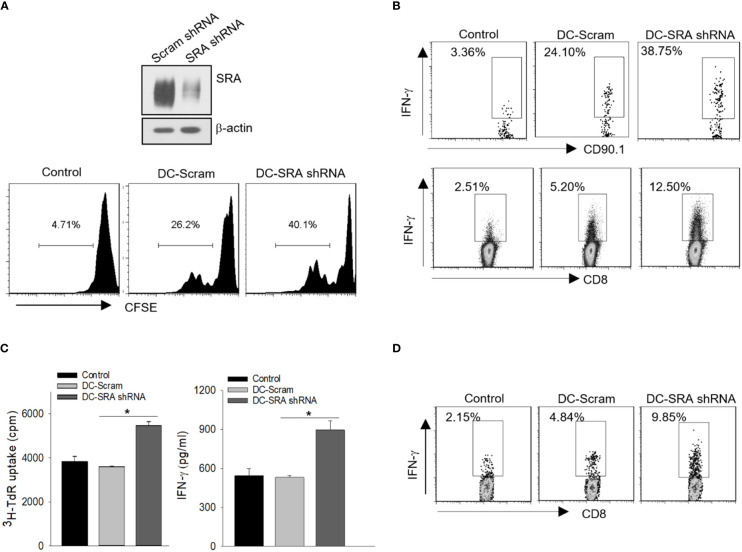Figure 1.
SRA silencing in DCs enhances activation of antigen-specific CD8+ T cells. (A) DCs were treated with a lentivirus encoding short hairpin RNA (shRNA) for SRA or scramble (Scram) control followed by immunoblotting analysis of SRA expression (top). These DCs pulsed with hsp110-gp100 complex vaccine were then co-cultured with CFSE-labeled, gp100-specific Pmel T cells at a ratio of 1:5. T cell proliferation was examined using CFSE dilution assay (bottom). (B) C57BL/6 mice were adoptively transferred with naïve Pmel CD90.1+CD8+ cells on day 0 and immunized on day 1 with SRA-silenced DCs that had been loaded with the complex vaccine. Lymph node cells were subjected to intracellular cytokine staining on day 5 for IFN-γ expression on CD90.1+ cells or CD8+ T cells. (C) SRA or scramble shRNA-treated DCs were pulsed with hsp110-ICD complex vaccine, and were co-cultured with ICD-reactive T cells for 3 days. 3H-thymidine uptake assay for cell proliferation and ELISA analysis of IFN-γ production in culture medium were performed. (D) FVBN202 transgenic mice were transferred with CFSE-labeled ICD-reactive T cells on day 0, followed by immunization on day 1 with SRA-silenced DCs or scramble shRNA treated controls pulsed with hsp110-ICD complex vaccine. Lymph node cells were examined for IFN-γ-producing CFSE+CD8+ cells on day 5. The results are representative of three independent experiments. *p < 0.05.

